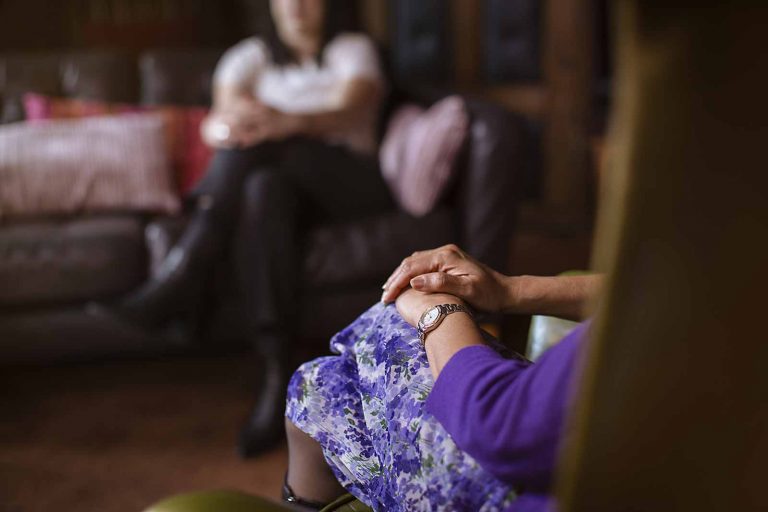Bulimia
What is bulimia?
Eating disorders are conditions in which there is a serious disturbance in the way someone deals with food, weight and body image.
Bulimia nervosa (bulimia) is an eating disorder in which people have cycles of eating too much in a short space of time (often in secret). There is a feeling of shame or guilt for over-eating, so find ways of getting rid of the food. This may be though vomiting, taking laxatives, excessive exercise, fasting or a combination of some or all of these.
Men and women of any age can have bulimia but it is typically found in women and starts in mid to late teens.
There are a number of symptoms that can indicate bulimia. However, spotting these symptoms in someone else can be difficult as people with bulimia can behave very secretively.
Symptoms of bulimia
- Eating very large amounts of food in a short space of time and often in an out of control manner - this is known as binge eating
- Making yourself vomit, using laxatives or doing an excessive amount of exercise after a binge, to avoid putting on weight. This is known as purging
- Fear of putting on weight
- Being very critical about your weight and body image
- Mood changes - for example, feeling very low or anxious
Causes of bulimia
Bulimia is a mental health condition and an eating disorder. The exact cause isn’t known and there are many factors that could play a role in the development of an eating disorder. These include genetics, biology and emotional health.
The cause is not known similar to other eating disorders but you may be more likely to get bulimia if:
- You, or a family member, has a history of eating disorders, depression, or alcohol or drug addiction
- You have been criticised for your eating habits, body shape or weight
- You are overly concerned about being slim, especially if you feel pressure from society or your job. Particular careers which may e at risk include dancers, athletes and modelling.
- If you have low self esteem, anxiety, obsessive personality or are a perfectionist
- You have been sexually abused
Treatments for bulimia
You can recover from bulimia, it may take time and the journey for everyone can be different. You may need help with other areas of your mental health, such as depression or anxiety.
Over time, this can lead to physical problems caused by not getting enough nutrients, vomiting or the over use of laxatives. Possible complications include:
- Feeling tired and weak
- Stomach acid from persistent vomiting can damage tooth enamel and also cause bad breath or a sore throat and can tear the lining of the throat
- Irregular or absent periods
- Dry hair and skin
- Brittle fingernails
- Swollen glands
- Fits and muscle spasms
- Heart, Kidney or bowel problems including permanent constipation
- More likely to develop bone problems such as osteoporosis, particularly if you have had symptoms of both bulimia and anorexia




Medication for bulimia
Medication is sometimes prescribed alongside the psychological therapy. There can be other mental health conditions e.g. depression which may require anti-depressants.
Therapy approach for bulimia
Psychological therapy is the recommended approach to treat bulimia. The aim is to help you understand the reasons for your eating problems and to help you normalise your eating patterns. Your therapist will work with you to identify and resolve unhealthy and negative beliefs. Cognitive Behavioural Therapy (CBT) can help you to learn to cope with your feelings.
Our dietitian will discuss your diet and help you achieve healthy eating habits which will avoid hunger and reduce cravings for certain foods as well as provide you with good nutrition.
Outcomes
Eating regularly and not restricting your food intake is an important part of overcoming bulimia. Many people do recover although for some people, the symptoms do not go away entirely. Bingeing and purging may occur at times, especially during periods of increased stress.
We're here to help you
Call Cardinal Clinic on 01753 910729
Or refer yourself for care, make an enquiry
or arrange a free nurse consultation via our
help hub.
A calm environment dedicated to your care
Rated ‘Outstanding’ for care and overall ‘Good’ by the Care Quality Commission, Cardinal Clinic works tirelessly to offer an elevated patient experience from exquisite and fresh chef-prepared meals, to comfortable and relaxing accommodations. Situated in a private estate in the heart of Windsor’s green belt, residential in-patient care, day care and out-patient services are offered.


